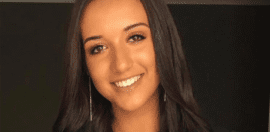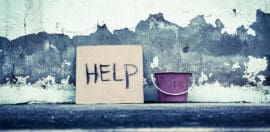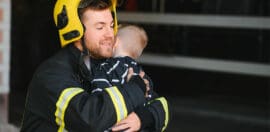How can childcare organisations handle abuse disclosures and problem sexual behaviours?

20 August 2020 at 7:00 am
It is difficult to know where to start with becoming child wise, but with courage, transparency and commitment to change, any childcare organisation can handle disclosures and problem sexual behaviours effectively.
Is your childcare organisation a child safe organisation? Do your staff and volunteers know how to respond to all forms of child abuse disclosures or responding to problem sexual behaviours? More importantly how comfortable are they at responding to these disclosures? In this article, we highlight some of the key considerations your organisation needs to take into account to become child wise.
Does your organisation have guidelines for handling child abuse disclosures?
Are these matters clearly articulated through clear guidelines for your staff and volunteers, to help them respond in a safe and risk-free manner without further harm to the child?
Bear in mind, what makes it more complicated in childcare organisations is the young age of the children (0 to 4 years old) and the differing communication skills.
Staff and volunteers need to understand the following;
- factors preventing children from disclosing abuse (Australian research tells us that less than 30 per cent of sexual assaults on children are reported to police);
- how to listen to children;
- how to pick up on hints and clues;
- different types of abuse;
- problematic sexual behaviours; and
- how to recognise the signs of child abuse and problem sexual behaviour in children aged 0-4 years old.
Why is it important to educate children from an early age about personal safety?
Children who are confident, knowledgeable, with good support networks and assertive with protecting their bodies are generally not targeted. Talking to children about safety of their bodies and how to protect themselves from an early age is an important part of keeping them safe.
Children have the right to learn how to protect and respect their bodies
Sexual development is part of human development. As a part of their overall sexual development, children show a gradual increase in curiosity and interest in their and others’ bodies and body functions.
Children have the right to learn how to protect and respect their bodies. Talking to children at an early age about their bodies, teaching them the names of all body parts, including their private body parts is fundamental. Sexual play should be like any other experimental play. Therefore, it should always take place within the child’s own peer group, i.e. those close in age and of similar intellectual ability. Sexual play outside of a child’s peer group such as with older or younger children, or children that the child does not normally play with could be of concern.
What child safe strategies should childcare organisations have in place?
As a child safe childcare organisation you should have all the right strategies in place:
- welcoming and respecting children and their parents/caregivers;
- respecting staff and volunteers by providing support, training and clear guidelines to do their jobs well;
- identifying potential risks to children and working continuously to prevent and reduce them;
- encouraging parental participation; and
- valuing children by asking their ideas and views and actively listening to them.
On top of these strategies, you still need to ensure your staff and volunteers know how to respond to children’s disclosures and to problem sexual behaviours.
How to respond to children’s disclosures and problem sexual behaviours
Throughout this process the welfare of the child is paramount. You need to ensure disclosures are responded to quickly, effectively and confidently. Having confident staff and volunteers to respond to disclosures is critical. No matter how anxious they might feel, children will choose to speak to someone they really trust.
The following tips help create a safe space for a better conversation:
- Help the child to open up. Stay calm, make them feel relaxed, move to a suitable environment, free of distractions. Keep the focus on the child.
- Slow down. Take your time – the child might just be testing the waters – let them take as much time as they need to tell their story, don’t rush them.
- Reflect back. Show you understood, use the child’s language to recap what they said. Show your care and concern without jumping to conclusions or solutions.
- Reassure. Let the child know it’s OK they have told you what’s been happening. Address any concerns about the child’s safety and reassure the child it is not their fault. Acknowledge their bravery and strength and do not make promises you cannot keep.
- Report. Any disclosure must be reported to the relevant authorities following outlined protocols. Record the information and keep the disclosure confidential.
Staff and volunteers must not over or under react to children’s sexual behaviour. Any response should avoid punishment and blame. Responding to problem sexual behaviour is an essential demonstration of the childcare organisation’s duty of care to the child.
It’s essential that all senior managers/owners are across all applicable laws to ensure all staff and volunteers are aware of their obligations. Every state and territory has enacted legislation prescribing both mandatory and voluntary reporting obligations.
“Effective early intervention with children who engage in problem sexual behaviour and their families will reduce the number of adolescents and adults who go onto develop more difficult, aggressive and abusive behaviour as they grow older. It will, by definition, decrease the number of children who experience sexual abuse. It will reduce the trauma and pain of these children and families.” (A Preliminary Evaluation of the Transformers Program for Children who Engage in Problem Sexual Behaviour)
How can childcare organisations be equipped to provide a child-safe environment?
You have a moral and legal duty of care to take action against any form of child abuse or bullying whilst the child is under your supervision. The key is being preventative rather than reactive. Staff and volunteers need to know how to handle difficult and uncomfortable situations that come with disclosures and problem sexual behaviour.
Where should childcare organisations start?
Honest and transparent conversations are needed. Is your organisation meeting your state legislative requirements? What is everyone’s experience with disclosures? How have these been handled in the past? Ask questions, discuss openly, seek further information and guidance.
There are many avenues of support available, such as services offered by organisations like Child Wise. As every workplace is different, our child safety Consulting, Coaching, Training and Accreditation services are tailored to individual needs. In partnership with an external guide, childcare organisations can conduct a comprehensive review of their child safety practices and procedures.
It is difficult to know where to start with becoming child wise, but with courage, transparency and commitment to change, any childcare organisation can handle disclosures and problem sexual behaviours effectively.
About Child Wise
Child Wise is a social enterprise of Save the Children. We work with organisations across Australia that provide services to children and young people to help them build a strong child safe culture and environment for children and young people in their care.
Child Wise is committed to the safety and wellbeing of all children. We are uncompromising in our purpose to protect children and young people from harm. We work with organisations of all sizes, across a range of different industries to achieve our mission.
To find out more about how Child Wise can help your organisation become a safe environment for children and young people, please call 1300 244 539 or email info@childwise.org.au







